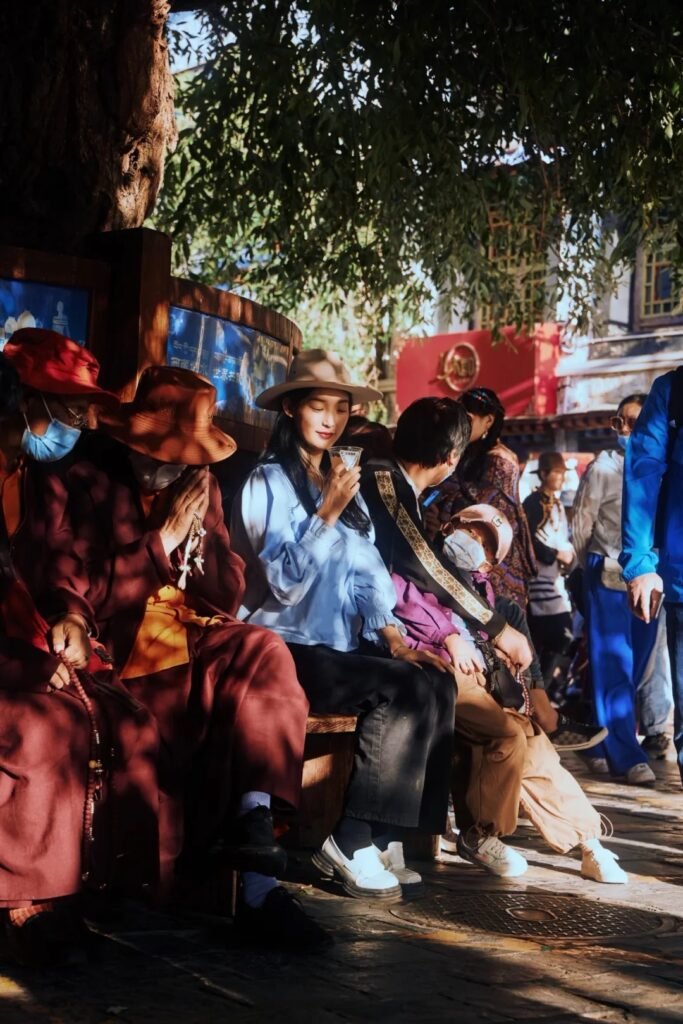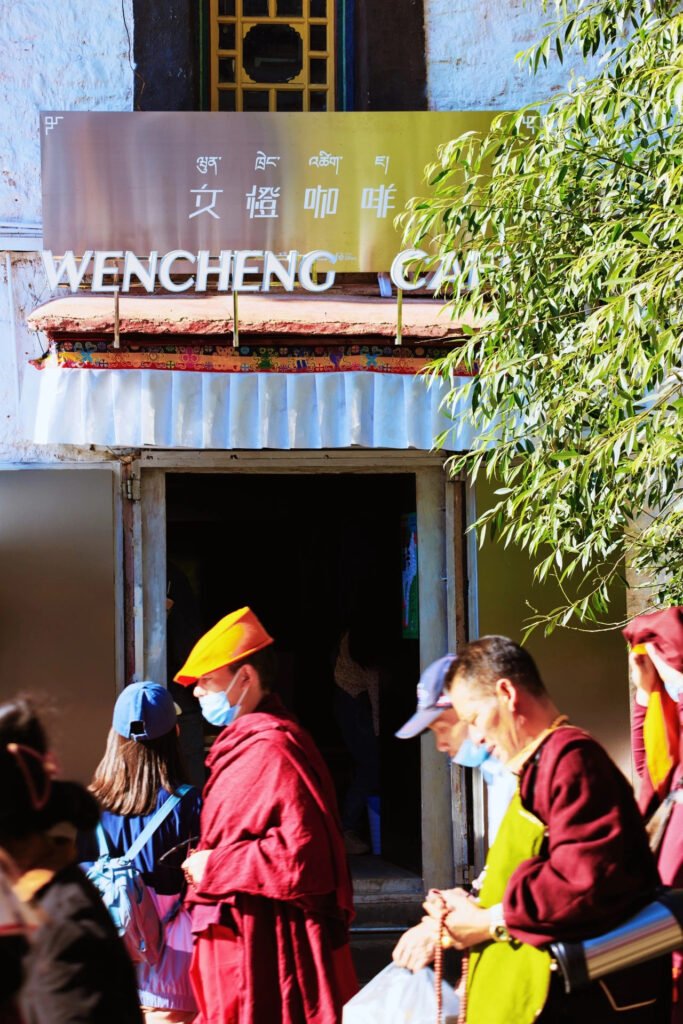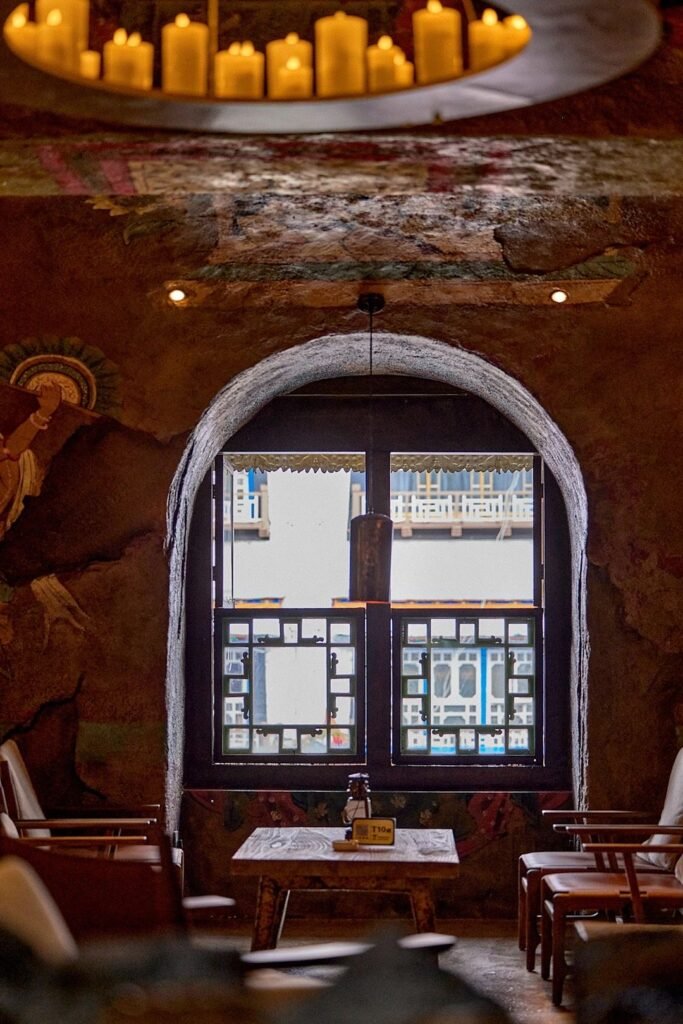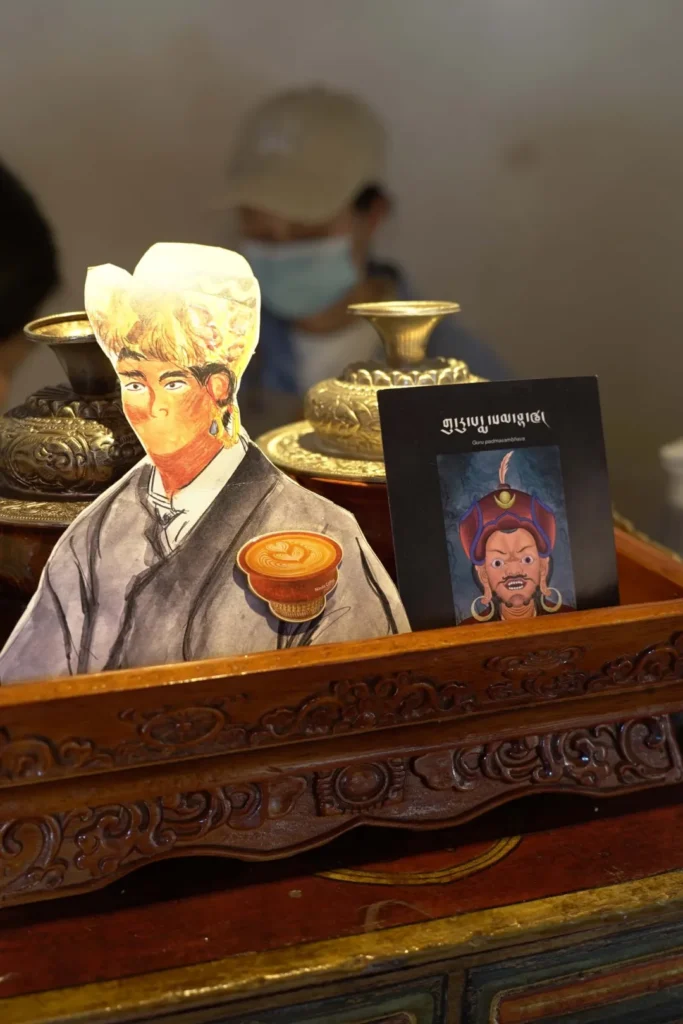Lhasa, the spiritual heart of Tibet, is a city where ancient traditions meet modern conveniences. While exploring its sacred temples and vibrant streets, why not take a break and enjoy a cup of coffee at one of the city’s top coffee shops? Here are some highly recommended coffee spots in Lhasa, each with its own unique charm and atmosphere.
Lhasa’s Coffee Culture: A New Daily Ritual
Lhasa’s burgeoning coffee scene reflects a modern lifestyle where sipping coffee has become a cherished daily ritual. Locals gather with friends in sunlit cafés to chat away the morning, spend post-lunch breaks at familiar coffee spots, or enjoy solitary moments with books and laptops.
For first-time visitors, the sheer number of coffee shops in Lhasa can be surprising. In recent years, this high-altitude city has experienced rapid growth in its coffee industry, with new cafés popping up frequently. In areas where Tibetan communities are concentrated, particularly in the eastern suburbs, coffee shops and teahouses now line the streets.
The Origins of “Coffee” and Its Tibetan Adaptation
Across languages, the word “coffee” often enters as a borrowed term, as seen in Chinese (咖啡), English (coffee), and French (café). Over time, such loanwords integrate into native lexicons, becoming indistinguishable from indigenous terms.
In Tibetan, coffee was once phonetically transliterated as ཀོག་ཧྥེའེ། (kog-fe’e), adhering to the global tradition of sound-based borrowing. Recently, a new translation, འཚིག་ཇ (tsik-cha, “roasted tea”), has emerged. This term aligns with Tibetan language’s preference for semantic translations, which has historically enriched its vocabulary, especially in Buddhist terminology.
However, labeling coffee as “roasted tea” might blur its unique identity, grouping it with tea, an older imported beverage. A balanced approach—integrating both sound and meaning while adapting to Tibetan phonetics—may better preserve the cultural and linguistic essence of coffee.
1. Wencheng Café: A Peaceful Retreat Near Jokhang Temple
Highlights: Located near the iconic Jokhang Temple, Wencheng Café offers a peaceful escape with stylish decor and a welcoming atmosphere. It is named after the descendant of the “Princess Willow” planted by Princess Wencheng. The café features an old tree at its entrance, where pilgrims often rest, creating a serene space to relax and enjoy a quiet moment amidst the hustle and bustle of Lhasa. Under the shade of an ancient tree near the Labrang Nyingba courtyard


Featured Winter Drinks at Wencheng Café
- Barley Wine – A thousand-year-old flavor from the mountains of Shannan, this traditional Tibetan drink is unforgettable with its unique, rich taste.
- Hot Latte – A classic coffee drink, warming you from the inside out, perfect for those chilly days.
- Chocolate Milk – Enjoy the rich, indulgent taste of hot cocoa, bringing a simple yet delightful winter experience.
- Hand Drip Coffee – Carefully selected coffee beans brewed to perfection, with a deep, aromatic flavor that offers warmth and brightness.
2. Mecha Café: A Journey Through Time on Barkhor Street
Highlights: Situated on the lively Barkhor Street, Mecha Café is named after the Tibetan word for “flint.” This café combines modern coffee culture with a historic atmosphere. The stunning wall murals, which took over 4,000 hours to complete, offer a visual journey into the past. With its artistic atmosphere, MECHA is more than just a café. It serves as a cultural space where every detail is carefully designed to transport guests through time. The café is a testament to MECHA’s dedication to preserving and celebrating Tibetan traditions.


Ningdu Café: Where Tradition Meets Modernity
Tucked away in the historic Shatra Courtyard, Ningdu Café offers a serene escape in the heart of Lhasa. Once the private residence of the Shatra family, this picturesque courtyard reflects traditional Tibetan architecture with its square layout and vintage charm. Its peaceful ambiance, paired with Tibetan-style furnishings, makes it an ideal spot to relax, reflect, or quietly focus on your work. For those seeking a blend of history and comfort, Ningdu Café provides a truly unique experience.
Ningdu’s connection to Tibetan heritage runs deeper than its historical setting. One of its branches is located within the Thangka Art Academy, seamlessly intertwining Tibetan art with modern coffee culture. The café’s name, “སྐྱིད་སྡུག” (happiness), reflects its mission to create joyful moments for its visitors. Sitting in a place that once housed Tibetan nobility, sipping coffee—a foreign drink first embraced by Lhasa’s aristocrats in the 1930s—brings a fascinating sense of time blending.
Perfect for coffee lovers and art enthusiasts alike, Ningdu Café stands as a cultural oasis where history meets modernity. Whether you’re exploring Tibetan traditions or seeking a tranquil spot to unwind, the café’s artistic ambiance and deep cultural roots make it an unforgettable stop in Lhasa.


GURKHA Coffee: A Tibetan Vibe Near Barkhor Street
Hidden in the heart of Lhasa, just a short stroll from Barkhor Street, GURKHA Coffee is a treasure waiting to be discovered. Located on the third floor of a quaint courtyard hotel, this café offers a unique ambiance filled with vintage Tibetan furniture and antique daily-use items from the region.
Step outside to the terrace, and you’ll be rewarded with breathtaking views of the iconic Potala Palace. Whether you’re savoring a traditional coffee blend or simply soaking in the serene atmosphere, GURKHA Coffee is a must-visit spot for travelers seeking an authentic Tibetan coffee experience with a touch of history.
2. Tape Tape: Modern Sophistication in the Heart of Lhasa
For a contrasting yet equally captivating experience, head to Tape Tape Cocktail Bar, a chic retreat away from the bustling Barkhor Street. Known for its elegant natural wood decor and a charming courtyard, this café exudes a sense of understated luxury.
With its polished interior and attention to detail, Tape Tape feels like a slice of Beijing or Shanghai transplanted into Lhasa. It’s a perfect haven for those seeking modern sophistication combined with cozy hospitality. The fusion of style and comfort makes it a great place to unwind with friends or enjoy a quiet moment with your favorite drink.
Jebum-gang Art Center: Where Tibetan Heritage Meets Contemporary Art
Nestled between Jokhang Temple and Ramoche Temple, the Jebum-gang Art Center is an extraordinary public cultural space and the first in Tibet to repurpose ancient architecture for modern use. This art center beautifully blends the region’s timeless heritage with a vibrant contemporary art scene, making it a must-visit destination in Lhasa.
After exploring the exhibition, head to the second floor for a cup of coffee in the open-air café. Here, you can savor the lingering impressions of ancient architecture and inspiring artwork while enjoying panoramic views of Lhasa’s vibrant streets. The Jebum-gang Art Center is more than just a gallery—it’s a cultural sanctuary that bridges Tibet’s past and present.
Barista Specialty Coffee: A Hidden Gem with Potala Views
Barista Specialty Coffee is a no-frills café that delivers a standard experience without major flaws but also lacks a wow factor. Its standout feature is its extensive coffee-making equipment, including an in-house bean roaster. However, the coffee beans didn’t quite align with the writer’s preferences, leaving the experience feeling average.
Highlights:
- Coconut Latte: A reliable option that doesn’t disappoint.
- Red Velvet Cake: Decent, though not memorable.
- Rooftop View: A potential draw, as the rooftop reportedly offers views of the Potala Palace.
If you’re staying nearby, it’s worth a visit for a quick caffeine boost, but it’s unlikely to become a repeat destination.
- Location: Drabchi Middle Road (within Watang Vashe Hotel)
- Hours: 11:30–21:00
- Recommendation: Coconut Latte
Lhasa Coffee (Lafe) Trendy Vibes and Creative Drinks
Highlights: A modern, trendy vibe, this café is known for its creative drinks, including the signature Lhasa Beach. With its industrial design and bold Tibetan-inspired elements, this café is a sensory delight. From the Lhasa Beach special—a blend of orange juice, espresso, and coconut milk—to the best Dirty Coffee in town, every sip here is unforgettable. The friendly vibe is enhanced by surprise moments, like meeting a playful dog or receiving a nostalgic snack as a token of kindness.
- Location: (Ask locals for the exact spot!)
- Hours: Flexible
CIDU Coffee: Enjoy Coffee with a View of the Potala Palace
Cidu Coffee is a stylish café in Lhasa known for its rooftop views of the Potala Palace, making it a go-to spot for those who appreciate a scenic coffee break. Many accommodations and cafés in the area boast similar views, but Cidu stands out with its ambiance.
Highlights:
- Specialty Grapefruit Sparkling Coffee: A sour blend that’s not for everyone—avoid if you’re not a fan of fruity acidity.
- Mini Cakes: Great for Instagram but less so for taste.
- Basic Latte: A solid and safe choice; it’s recommended to stick to the basics here.
Cidu is ideal if you’re strolling around Barkhor Street and want to enjoy some fresh air while admiring the distant Potala Palace.
- Location: 6th Floor, Cidu Hotel, No. 34 South Linkuo Road, Chengguan District
- Hours: 10:00–22:00
- Recommendation: Latte; skip the specialty drinks if you’re not adventurous.
Gulinfang Café: A Cozy Spot with Indoor Trees
Highlights: Gulinfang Café, located in the courtyard of the Jiaotong Hotel, offers a unique atmosphere with real indoor trees and a cave-like setup. This cozy local chain café is a great place to unwind, and its popular cakes are a must-try for dessert lovers.
Summit Café: Coffee and Tiramisu Near Jokhang Temple
Nestled in the heart of Lhasa, Summit Café is widely regarded as the most popular coffee spot in the city. Located near the bustling Barkhor Street, this café has become a favorite destination for travelers and locals alike, offering a warm and cozy atmosphere amidst the high-altitude charm of the Tibetan Plateau.
Exceptional Coffee
Summit Café is renowned for its high-quality coffee, brewed from freshly roasted beans sourced both locally and internationally. From rich espressos to creamy lattes, the café serves a wide range of beverages that cater to diverse tastes. Their signature butter coffee, inspired by traditional Tibetan butter tea, is a must-try for anyone looking to experience a unique twist on classic coffee.
“西子” Café: A Riverside Elegance
Located by the Lhasa River, “西子” evokes the grace of Su Shi’s famous verse comparing West Lake to the beauty of a woman. The café’s name sets the tone for an aesthetic experience. On its second floor, visitors can sip hot Americanos while watching the world pass by—cars, pedestrians, and the shimmering sunlight dancing on the road. In autumn, fallen yellow leaves gather under roadside tables, while dappled sunlight filters through the branches above, adding to the idyllic atmosphere.
“K’s Coffee”: A Trendy Hub
From Barkhor Mall to Tama, “K’s Coffee” has expanded its footprint and become a haven for Lhasa’s trendsetters. Known as a pre-party spot before Barkhor’s nightclubs open, it offers a lively vibe. The café owner, trained in the U.S., brings an international touch, particularly in crafting pizzas alongside coffee. For those who consider themselves “less trendy,” stepping into this café might feel like entering another world—a testament to its edgy, stylish appeal.
Conclusion: The Best of Lhasa’s Coffee Culture
Lhasa’s coffee scene offers a blend of traditional Tibetan culture and modern comforts. Whether you’re looking for a peaceful retreat near a temple, an artistic setting, or a trendy hangout spot with stunning views of the Potala Palace, these cafés offer something for everyone. Don’t miss out on these must-visit spots for a truly unique coffee experience in the heart of Tibet!
Coffee: A Newcomer in Lhasa’s Tradition
Coffee is undeniably a foreign import to Lhasa, often met with playful criticism that it doesn’t align with local traditions like drinking sweet tea. Yet, sweet tea itself is a relatively recent arrival, originating south of the Himalayas and likely spreading through South Asia during British colonial rule. This reminds us that many so-called “traditions” might not be as deeply rooted as we assume; what feels indigenous could well have foreign origins.
Modernization and Social Diversity
Drawing from the podcast “500 Years of the Modern World”, modernization globally began around 1500 CE, albeit at different paces and timelines for various regions. One key marker of modernization is social diversity—the ability to accept and incorporate a broader range of ideas, practices, and influences. Lhasa’s adoption of coffee culture is a reflection of this trend: a city where modernity and tradition coexist harmoniously.
The Coffee Scene in Lhasa
Lhasa’s coffee scene is thriving, with residents frequenting their favorite cafés to pass time, meet friends, or conduct business.
- Top of the World Coffee: Considered a pioneer, this café introduced a modern coffee shop experience to Lhasa. Owned by an American, it initially used English for orders and gained popularity for its strategic locations, like its now-closed branch overlooking the bustling streets of Tromsikhang. The Danzhilin branch, always crowded, serves as a hub for a diverse clientele, situated next to the lively Gangqiong Tea House. Here, modernity and tradition are literal neighbors.
- Newcomers: Chains like Luckin Coffee and Cudi have entered the market but haven’t disrupted the local coffee ecosystem. Despite high prices, cafés in areas like the eastern suburbs remain packed, indicating the enduring appeal of coffee in Lhasa’s evolving lifestyle.
A Growing Trend
The density of coffee shops in Lhasa is striking. On a single 200-meter stretch, it’s not uncommon to find three or four coffee houses. This trend shows no signs of slowing down, with many new establishments under renovation.
Reflection
The story of coffee in Lhasa underscores the city’s openness to external influences while maintaining its unique character. It exemplifies how modernization brings a blend of global practices and local traditions, allowing a city to thrive as both a cultural and modern hub.
